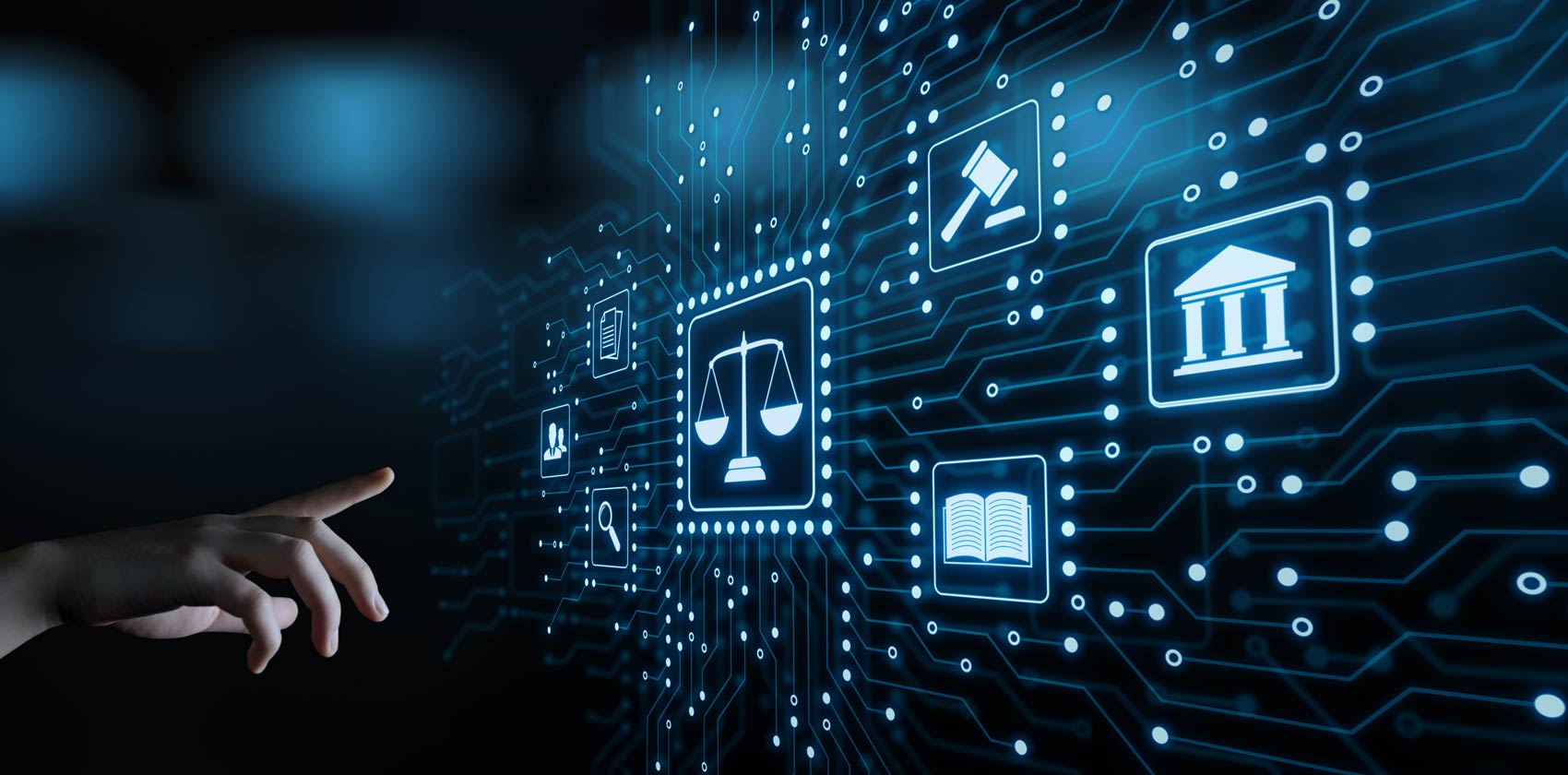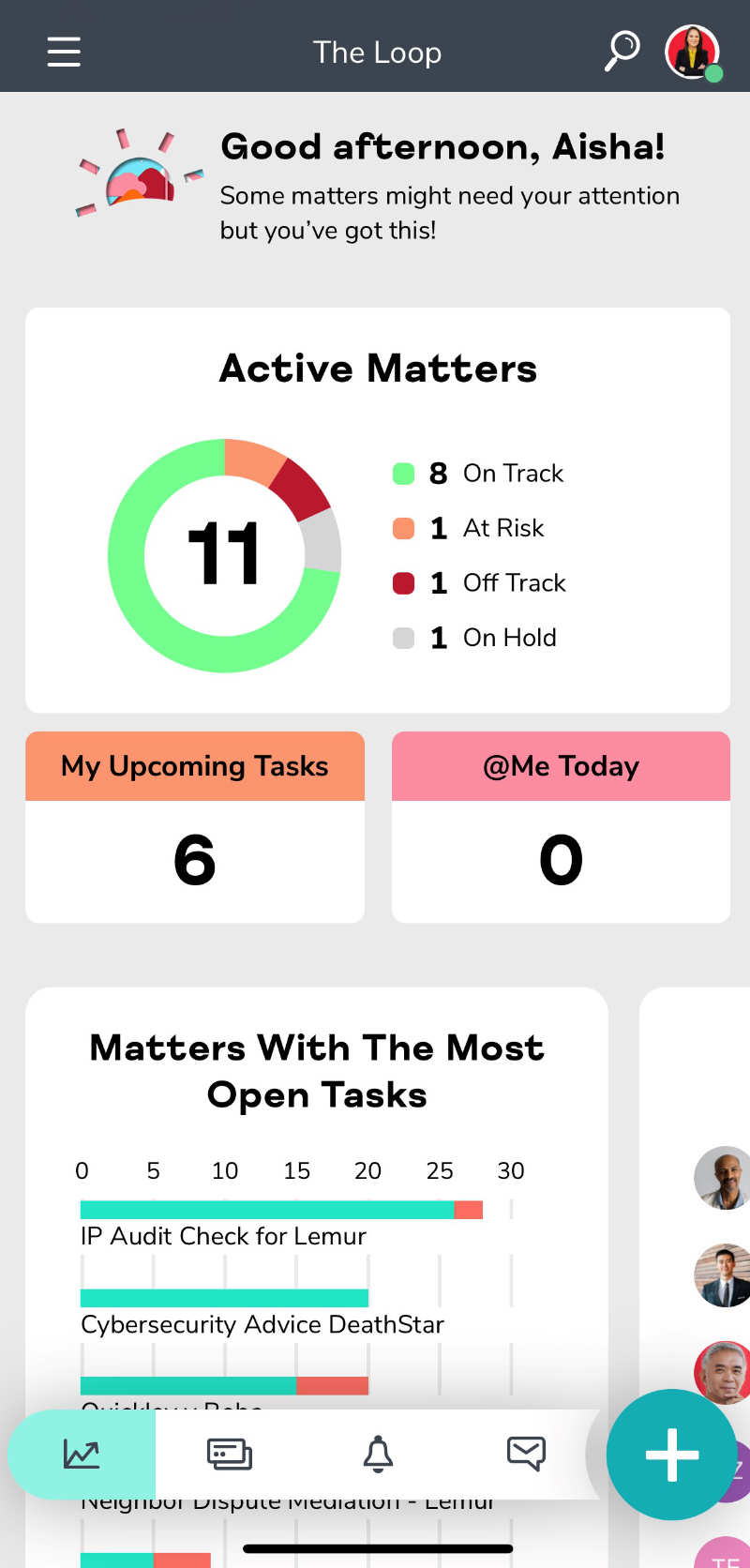
Levelling Up with the Legal Technology Platform
The practice of law is constantly evolving.
Information now moves at a much faster pace, and can be disseminated with just one click, to a far greater number of people than before. This is the same for business and professional transactions, which can be completed swiftly and efficiently using technology. These developments have implications on lawyers, who like everyone, need to sift through the constant influx of information quickly, to focus on adding value to their clients.
At the same time, clients are becoming increasingly sophisticated. They are users of technology for their everyday needs (e.g. digital banking, government e-services, instant messaging platforms) and direct consumers of information (e.g. law updates, contract templates, client reviews and market rates for legal fees). Today’s clients expect their lawyers to provide quicker responses, greater accessibility, better work quality, and on top of that, lower fees. The competition is fierce, and lawyers need to keep up, or risk falling behind.
Throw COVID-19 into the mix and the operating environment gets even more complicated. Even as Singapore moves forward on the endemic COVID-19 path, the changes precipitated during the pandemic are here to stay. Working from home; accessing cases and files virtually; meeting clients and colleagues online; attending virtual hearings, courses and webinars; these have become the norm.
There is only one way for lawyers to respond to these new trends and expectations, to remain relevant and competitive. That is, to change the way they work. One key enabler of this transformation is the use of suitable technology tools, to achieve more with the same amount of time and resources.
Easier Said Than Done
Going digital is not an easy feat. Not all law firms have the luxury of time and dedicated resources to scout for and assess technology tools. The legal technology landscape is fragmented – and lawyers are faced with a myriad of questions to grapple with, such as “Which tool, or set of tools, would suit my needs? Does the price make sense? How long would it take for me to see returns on this investment? Would the migration process be a hassle? What do I do when I face technical issues? Is it secure?” These are basic but essential questions, but there are no easy answers. And the inertia to change is high, with high workloads and road bumps at every step of the way.
Those who manage to overcome this inertia, but do not have the time to properly assess and curate the many tools on the market, may end up with a patchwork of systems and tools, each serving different purposes – document management, practice management, document comparison, online legal research etc. Lawyers may then find themselves spending time manually toggling and syncing the information they have across the tools. This situation is less than ideal.
Supporting Digitalisation Through the Legal Technology Platform
Over the years, the Ministry of Law (MinLaw) has embarked on various initiatives to support Singapore law firms to adopt technology. More recently, in 2020, it launched the Legal Industry Technology and Innovation Roadmap (TIR) to set out plans for the industry for the next decade. A key initiative is the Legal Technology Platform (LTP) which will be launched in 2Q2022. The LTP is an easy-to-use, plug-and-play consolidated platform that aims to help law firms manage their legal matters more seamlessly.
The LTP will address the lack of economies of scale and IT expertise among the Singapore law firms, especially the small and medium ones. This will be complemented with the Legal Industry Digital Plan (IDP), to help Singapore law firms identify digital solutions that suit their business needs as well as technology tools for their legal workflow and processes. The IDP also includes a training roadmap on digital skills to equip themselves with, at their different stages of growth.
Seven Things to Know about the LTP
- What is the LTP? The LTP is a matters management tool designed around legal workflows and integrated with legal technology tools and public services commonly used by Singapore lawyers (see box below).
- Why should I choose the LTP? The LTP will streamline day-to-day workflows, so that lawyers can concentrate on more substantive legal work. Some examples:
- Instead of toggling between various tools “all over the place”, lawyers can have a bird’s eye view of key information or access features of various tools on one single interface, “all in one place”.
- There will be an integrated view of communications, where correspondences through e-mail, Microsoft Teams, Slack and WhatsApp for a particular matter will be consolidated and appear on one interface.
- The LTP will progressively be enhanced to enable quicker access to public sector systems that lawyers often interact with, such as eLitigation, to view case files and transact with the courts.
- How was it developed? The LTP was developed for Singapore law firms in consultation with Singapore law firms. MinLaw and its technology partner for LTP, Lupl, consulted more than 100 lawyers from small and medium Singapore law firms for their views on the features of the LTP, including through feedback sessions co-organised by the Law Society of Singapore with its members and relevant standing committees. An Industry Engagement and Advisory Group comprising early adopters from small and medium firms has also been set up to continuously test, and provide consolidated feedback on the LTP, so that it can be constantly updated and enhanced through iterative feedback.
- How much will it cost? The LTP will cost $50-100 per user per month (the exact price will be announced at the upcoming official LTP launch). Based on a pricing study undertaken by MinLaw and the Law Society of Singapore in June 2020, this is the price range that most lawyers find acceptable.
- Will grants be available? MinLaw is working with Enterprise Singapore (ESG) to defray law firms’ initial cost of adopting the LTP.
- How secure is the LTP? The LTP was built with input from a group of leading legal departments and law firms, and incorporates their security and privacy requirements. These were combined with best practices in secure system design, to ensure a privacy and security first approach. The LTP currently holds SOC 2 Type 1 and Cloud Security Alliance STAR Level 1 certifications. It also complies with the requirements of applicable laws and regulations, including Singapore’s Personal Data Protection Act (PDPA) and the EU’s General Data Protection Regulation (GDPR). LTP data belonging to Singapore users will be hosted in Singapore, with data masking and strict access controls in place. These are complemented by third-party data and security audits and penetration testing done annually, as well as continuous code and network vulnerability testing throughout the year. SOC 2 Type 2 audit and certification is planned for the year, and efforts to achieve ISO 27001 certification will follow shortly after.
- What technical support can lawyers get? There will be dedicated personnel from Lupl to onboard and train lawyers on the essential features of the LTP, and help lawyers get started. There is no need for lawyers to worry about maintenance as the LTP will be upgraded automatically with maintenance and security patches pushed down to the users on the back end. A 24/7 technical helpline will be available for Singapore users, to address any troubleshooting needs.
Key LTP Features By 2Q 2022
- Management and tracking of legal workflows, such as assignment of tasks and reminders.
- Integrated view of communications; including viewing e-mail correspondence from within the matter channel and chat messages from Slack (a third party messaging app).
- Coordinate projects across different platforms, such as the ability to initiate sharing of documents through WhatsApp, and check on the status of matters via Microsoft Teams.
- Interoperability with existing legal technology tools popular among Singapore lawyers, such as Tessaract and Clio, and video-conferencing tools such as Zoom.
- Knowledge hub, which hosts templates and checklists for lawyers’ use.
Beyond 2Q 2022
- Progressive enhancements to improve connectivity with systems that lawyers often interact with, such as eLitigation and LawNet.
- Enhancements of existing features, based on feedback from Singapore lawyers.
The Time is Now
The LTP is not MinLaw’s first initiative to support lawyers in their digitalisation journey. It builds on previous efforts such as the Tech Start for Law (2017) and Tech-celerate for Law (2019), as well as the ongoing initiatives by the Law Society of Singapore (such as the Raising the Bar programme and SmartLaw Guild scheme) and the Singapore Academy of Law (such as the Lighten-Up! consulting programme and Future Law Innovation Programme (FLIP)).
But it will certainly be a great catalyst to bring Singapore law firms to the next level. The vision is for the LTP to be the single platform that can meet most, if not all, of a lawyer’s technology needs, and for all Singapore lawyers to come onboard to reap its benefits. Register your interest in the LTP and its upcoming launch event here!








